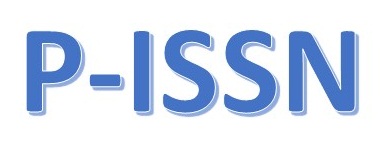Peranan Guru Bimbingan dan Konseling dalam Meningkatkan Perilaku Prososial Siswa Pada Pembelajaran Daring
Abstract
Prosocial behavior needs to be developed in everyday life by students, including online learning activities. In fact, there were still students who are still unable to behave prosocially in online learning. The role of Guidance and Counseling (BK) teachers is needed as a unit for providing assistance to improve it. This study aims to determine how the role of BK teachers in improving students' prosocial behavior in online learning. This research is a qualitative research with descriptive type. The data in this study were obtained from seven informants, namely principal, vice principal of student affairs, three BK teachers and two students. The five informants are primary data sources. The secondary data obtained through the results of a literature review. Data were collected through interview techniques, observation, and documentation notes. The data were analyzed by componential analysis of the Miles and Huberman model. The data were validated through triangulation technique. The results of the study indicate that the counseling teacher in improving prosocial behavior performs the roles of facilitator, corrector, mediator, and advisor.
References
Abdullah, A. A., Hamsan, H. H., & Ma’rof, A. . (2020). How do Personality Factors Associate with Prosocial Behavior? The Mediating Role of Empathy. International Journal of Academic Research in Business and Social Sciences, 10(16), 206–219.
Aprianti, C., & Abdi, S. (2021). Efektivitas Layanan Bimbingan Kelompok Teknik Positive Reinforcement Berbasis Online Terhadap Peningkatan Minat Belajar Siswa Pada Era Covid-19. Guidance : Jurnal Bimbingan Dan Konseling, 18(01), 1-7.
Arradian, D. (2021). Hari Pendidikan Nasional, Kasus Perundungan Sekolah Berubah ke Cyberbullying. Sindonews.Com.https://tekno.sindonews.com/read/415810/207/hari-pendidikan-nasional-kasus-perundungan-sekolah-berubah-ke-cyberbullying-1619957144
Devi, A. T., Yusuf, M., & Hardjono. (2017). The Relationship Between Sense of Community and Agreeableness With Prosocial Behavior Among Member of Young On Top (YOT), Journal of ICSAR, 1(1), 6–12.
Dewi, Y. ., Fatimah, S., & Pahlevi, R. (2021). Penerapan Teknik Role Playing Dalam Bimbingan Kelompok Terhadap Perilaku Prososial Siswa di Masa Pandemi Covid-19. FOKUS (Kajian Bimbingan & Konseling Dalam Pendidikan), 4(4), 269–278.
Direktorat Sekolah Dasar. (2020). Cegah Cyberbullying saat Belajar Daring - Direktorat Sekolah Dasar. Http://Ditpsd.Kemdikbud.Go.Id/. http://ditpsd.kemdikbud.go.id/artikel/detail/cegah-cyberbullying-saat-belajar-daring
Dwiputra, K. O. (2021). Awas, Bullying Bisa Terjadi saat Sekolah di Rumah. Klikdokter.Com.https://www.klikdokter.com/info-sehat/read/3647985/ hati-hati-bullying-juga-bisa-terjadi-meski-sekolah-di-rumah
Gupta, D., & Thapliyal, G. (2015). A Study of Prosocial Behaviour and Self Concept of Adolescents. I-Manager’s Journal on Educational Psychology, 9(1), 38–45.
Kaur, R. (2019). A Review on Prosocial Behavior: Social Psychology. International Journal of Research in Engineering, IT and Social Sciences, 9(1), 227–229.
Kurniawati, N. A., Solehuddin, & Ilfiandra. (2019). Tugas Perkembangan pada Anak Akhir. Journal of Innovative Counseling: Theory, Practice & Research, 3(2), 83–90.
Kuswendi, U. (2019). Teacher Strategy in Development Prosocial Behavior of Students in Elementary School. PrimaryEdu - Journal of Primary Education, 3(1), 7–16.
M.R, R. S., Rahmatyana, N., Mustifah, C. ., & Fatimah, S. (2019). Peran Guru Bimbingan Dan Konseling Dalam Meningkatkan Perilaku Menolong Siswa. FOKUS (Kajian Bimbingan & Konseling Dalam Pendidikan). 2(3), 114–124.
Matondang, E. S. (2016). Perilaku Prososial (Prosocial Behavior) Anak Usia Dini dan Pengelolaan Kelas Melalui Pengelompokan Usia Rangkap (Multiage Grouping). EduHumaniora: Jurnal Pendidikan Dasar, 8(1), 34–47.
Milovanović, I., Gentile, A., Gutović, T., Kezić, A., Matošić, D., Kreivytè, R., Valantine, I., Daidone, G., Bianco, A., Radjo, D., Obradović, B., & Drid, P. (2020). Prosocial and aggressive behavior occurrence in young athletes: Field research results in six European countries. Sustainability (Switzerland), 12, 1–13.
Moleong, L. . (2018). Metodologi penelitian kualitatif. PT. Remaja Rosdakarya.
Norrahman, M. F. (2020). The Role of Prosocial Behavior and Adversity Quotient Against Social Loafing in Sekolah Tinggi Ilmu Administrasi (STIA) Amuntai. Journal Urbangreen, 1(1), 16–25.
Undang-Undang Nomor 20 Tahun 2003 tentang Sistem Pendidikan Nasional, (2003).
Prima, E. (2018). Upaya Guru dalam Menumbuhkan Perilaku Prososial Anak Usia Dini (Studi pada Guru di TK Khalifah Purwokerto). YINYANG: Jurnal Studi Islam, Gender Dan Anak, 13(2), 191–203.
Rahmawati, W. K., & Bibi, S. (2021). Hubungan antara persepsi siswa terhadap kinerja guru bimbingan dan konseling dengan kepercayaan melakukan konseling individual. Guidance: Jurnal Bimbingan Dan Konseling, 18(12), 1–9.
Septiana, N. Z. (2019). Perilaku Prososial Siswa SMP Di Era Revolusi Industri 4.0 (Kolaborasi Guru dan Konselor). Jurnal Nusantara of Research, 6(1), 1–15.
Vieweg, J. . (2018). Prosocial Behaviors: Their Motivations and Impacts on Organizational Culture. The Journal of Values-Based Leadership, 11(2), 1–12.
Wirayanti, I., & Aspin, A. (2020). Peranan Guru Terhadap Pembinaan Perilaku Pro Sosial Siswa. Jurnal Ilmiah Bening : Belajar Bimbingan Dan Konseling, 5(1), 1–10.
Yusuf, A. M. (2014). Metode Penelitian: Kuantitatif, Kualitatif, dan Penelitian Gabungan. Jakarta: Kencana Prenadamedia Group.
Copyright (c) 2021 Sri Utami, Rezky Permata Sari, Dian Renata

This work is licensed under a Creative Commons Attribution 4.0 International License.

















